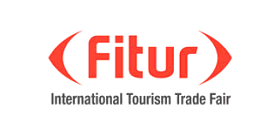 UN Tourism at FITUR: Investments, Accessibility, and Innovation Drive African Growth
UN Tourism at FITUR: Investments, Accessibility, and Innovation Drive African Growth
At the recent FITUR international trade fair, UN Tourism reaffirmed its commitment to enhancing the sector through investments, innovation and greater accessibility. Celebrating its 50th anniversary, UN Tourism gathered high-level delegates to discuss the next 50 years, focusing on the role of tourism in promoting peace and understanding. The emphasis was on supporting new technologies and boosting financial investments. This is particularly relevant for the African context, where these elements are crucial for sustainable growth.
UN Tourism Secretary-General Zurab Pololikashvili highlighted the importance of collaboration between the public and private sectors, a critical factor for African nations as they develop their tourism industries. High-level meetings at FITUR facilitated discussions with Ministers of Tourism, business leaders, and representatives from Member States. African stakeholders need to actively engage in such forums to influence the agenda.
A key focus of FITUR 2025 was tourism investments. A special Investment Breakfast, hosted in collaboration with the Development Bank of Latin America and the Caribbean (CAF), addressed investment opportunities and challenges. This event underscores the importance of having investment-ready projects and sound business plans, as the competition for funding becomes increasingly fierce. UN Tourism presented new "Tourism Doing Business" Investment Guidelines for Panama and Brazil, highlighting the need for African nations to also develop similar tailored resources for potential investors.
UN Tourism’s dedication to accessible tourism was also a prominent feature at FITUR. A special side event, organized with AccessibleEU and other partners, discussed the benefits of inclusive destinations for both companies and travellers. With the African continent having numerous attractions that could benefit from increased accessibility, such discussions are timely. The event also addressed the existing challenges, emphasizing the role of infrastructure and innovative solutions, that all stakeholders in the African travel industry should take note of.
The inclusion of Affiliate Members further strengthens the network, with a special event focusing on targeting specific traveler segments. This concept is crucial for African destinations looking to diversify their offerings and reach new markets. The new Memorandums of Understanding signed at FITUR emphasize creativity and innovation, something that the African tourism industry could use to promote cultural and nature-based attractions. African travel professionals could benefit from attending these events to learn about the latest trends and network with international operators. The message is clear: African tourism must embrace investment, accessibility, and innovation to ensure its sustainable growth and global competitiveness.
